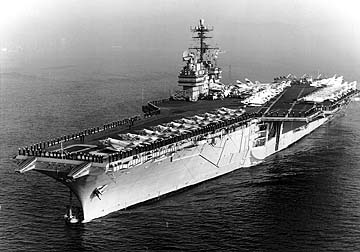Fueling Desire
Speaker's Corner: For some, a whiff of coffee or a salty ocean breeze can conjure memories of a place and inspire wanderlust. For Jerry V. Haines, it's something else: the sweet smell of jet fuel.
10.02.06 | 7:18 AM ET

Smells have amazing power to trigger reactions—and memories. Gauloises smoke can take me back to Paris; the stench of durian to a Malaysian fruit market; the aroma of dried cod to a Lisbon alley. And jet fuel can take me places, too, literally and mentally.
Recently a writer on World Hum observed that whenever he traveled, “I still get the buzz of being in Airworld. The smell of jet fuel. Picking up an airplane novel at Hudson News. Random encounters at the airport bar.” He had me at “jet fuel.” That’s my memory elixir, my synapse short-circuiter, my Coppertone.
For our 20th wedding anniversary, my wife and I went to St. Martin (or, more correctly, “Maarten,” since we stayed on the Dutch side). Our hotel was an appropriately romantic cluster of seaside bungalows, where at night we nibbled conch ceviche and watched the sunset from an open air restaurant over the water. Janice allowed that there was only one flaw in the setting, the smell of burning jet fuel from the nearby Princess Juliana airport.
How could I have been married to someone for two decades and not been aware of such a significant difference in our tastes? I love the smell of jet fuel in the morning—and afternoon and evening. To me that smell means flight, adventure, romance. (I guess I’m a jet fuel snob: Notice the subtle bouquet. Mmmm, musty, full-bodied, slightly sweet, with notes of coal—I’m thinking Bay City, Texas, the southern slope…)
I hadn’t specifically requested a hotel near the runway of an international airport—so tightly wedged into its resort neighborhood that one can lie on the beach and count the rivets on the planes as they swoop to a touchdown just seconds later. But I was happy to watch the landings, to hear the engines roar, to smell the burning fuel.
That may be due to the 2 1/2 years I spent aboard a Navy aircraft carrier. I wasn’t a pilot—far from it. I was a “blackshoe”: a declasse, non-aviator member of the ship’s company. Even worse, I was a “snipe”: an engineering officer, who spent most of his life in the steamy boiler and engine rooms well below the waterline, rarely seeing the sun, turning nearsighted and albino, and growing odd tentacles. But when I crossed the hangar deck on my way to bed, or the flight deck on one of my rare moments above decks, I breathed in the smell that forever after I would associate with going somewhere unknown. With that smell in my nostrils I’d stand there on the catwalk, gazing out at the undulating Mediterranean, listening to music from who knows where—Turkey, Greece, North Africa—on my portable radio. Give me a whiff of jet fuel even today, and I’m back on that catwalk. And ready to head out into the unknown again.
 Jet fuel ought to be out of place in our space-age aviation industry. Given the silicon-focused, satellite-guided state of technology, you’d think modern jets would fly on something more sophisticated than kerosene. But that’s basically what it is—a fairly primitive product of petroleum refining. They just strain the pterodactyl bones out of it and cook it a bit. It’s not a whole lot different from lantern fuel or charcoal lighter (which may explain why I get the same rush at backyard barbecues that I do at Washington Dulles). JP-5, the fuel I smelled as a sailor, is a slight variant. It has a higher flash point, a nice attribute to have if it’s going to be used aboard a seagoing vessel. (If Samuel Johnson correctly characterized a ship as prison with the added possibility of drowning, an aircraft carrier is a ship with the added possibility of immolation.) But JP-5, too, is really just “coal oil.”
Jet fuel ought to be out of place in our space-age aviation industry. Given the silicon-focused, satellite-guided state of technology, you’d think modern jets would fly on something more sophisticated than kerosene. But that’s basically what it is—a fairly primitive product of petroleum refining. They just strain the pterodactyl bones out of it and cook it a bit. It’s not a whole lot different from lantern fuel or charcoal lighter (which may explain why I get the same rush at backyard barbecues that I do at Washington Dulles). JP-5, the fuel I smelled as a sailor, is a slight variant. It has a higher flash point, a nice attribute to have if it’s going to be used aboard a seagoing vessel. (If Samuel Johnson correctly characterized a ship as prison with the added possibility of drowning, an aircraft carrier is a ship with the added possibility of immolation.) But JP-5, too, is really just “coal oil.”
In an effort to make flying less intimidating, the industry is taking the travel out of traveling. Think about it: you can fly somewhere now without ever seeing the outside of your plane. Boarding is essentially passing through a corridor from one large room (passenger lounge) to another (cabin). The airports take pride in their un-airportlike amenities: spas, brewpubs, shopping in the same chains as the mall. I have a passion for Airworld, but, as with authentic urban neighborhoods, I fear it is being gentrified away.
Please disable your geez alarms, because I’m about to do more major league geezing here: When I was a teenager in Minnesota, the cool thing to do on prom night was to take your date out to the then-new Minneapolis airport and just parade through the concourses, lounges and observation decks. Sounds crazy, but airports and travel then were something really special—a departure (in more than one sense of the word) from ordinary life. That allure is disappearing.
Except for the jet fuel smell. That’s more difficult to expunge. You’re going to get a whiff of jet fuel as you park your car, or alight from the taxi or airport bus. For me, that anachronistic smell is the welcome signal that I’m traveling. Up until that point, it’s been all freshly laundered clothes, air conditioner exhaust and pine tree car air freshener.
It’s the jet fuel smell that tells me I’m leaving ordinary life behind.![]()
Florist UK 10.10.06 | 3:57 AM ET
As Proust, Marcel not Alain, used to write, memories can be brought back by very different stimuli.
Marilyn Terrell 11.06.06 | 10:02 AM ET
Ooh, that intoxicating smell! It’s so true what you say about the airlines taking the travel out of traveling. But they can’t kill that unmistakable aroma. love it! Thanks so much for writing this.
Lieder 11.30.06 | 6:34 PM ET
Very interesting article! By the way, today i´ve got a new favorite quotation: “I love the smell of jet fuel in the morning”
yasmin rahman 10.04.07 | 5:29 AM ET
Dear Mr. Jerry V. Haines,
I read your article about Tunisia. Because of that, i would like to ask you a few questions about Tunisia please, if you dont mind. I want to know which are the best neighborhoods in Tunis where I can live. I want the most upscale neighborhoods please. What type of residential property is popular in Tunis? Where are the most favorite neighborhoods of expats? Which are the most expensive?
Please help!
Thank you!